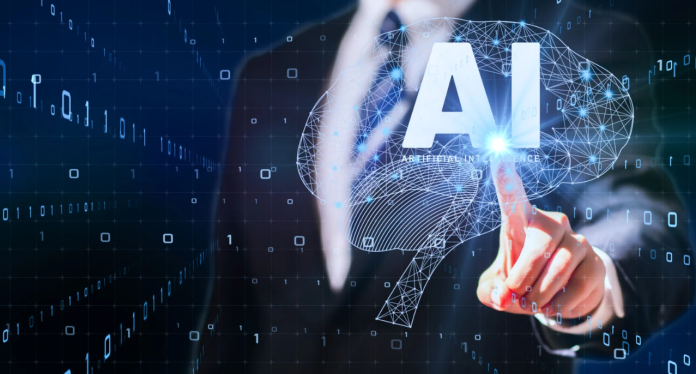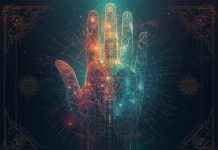The question “Can AI predict the future?” has been buzzing louder than a crystal ball at a midnight séance. Artificial intelligence has become the modern oracle of our times—algorithms that claim to forecast weather patterns, stock market swings, and even who you might fall in love with based on dating app data. On paper, AI seems unstoppable. It crunches data faster than any human could dream, and it spits out predictions that often sound eerily accurate. But here’s the twist: while AI can map probabilities, it can’t touch the spiritual, emotional, or soul-level dimensions that psychics navigate every single day.
This isn’t just a tech-versus-mystic showdown—it’s about understanding the limits of machines and the infinite depth of human consciousness.
AI: The Probability Machine
AI thrives on one thing—data. Feed it billions of data points and it will uncover patterns so hidden you’d think it had second sight. Spotify knows your next favorite song before you do. Netflix recommends shows that fit your mood on a Tuesday night after work. AI meteorologists predict storms with pinpoint accuracy.
But here’s the catch: AI isn’t “seeing” the future. It’s reading the past, rearranging it, and spitting out the likeliest outcomes. It’s like guessing which card is next in a deck if you’ve already seen the first 51. Impressive? Absolutely. Psychic? Not quite.
The heart of the future is uncertainty, and uncertainty doesn’t fit neatly into an algorithm. AI is built on logic and probability. Intuition, by contrast, is not.
The Psychic Difference: Beyond the Data
Psychics don’t need terabytes of data. They read energy, symbols, emotions, and spiritual fields that can’t be measured by sensors. A psychic doesn’t just say, “Statistically, you’ll meet someone in three months.” They might feel the warmth of a soulmate’s energy, describe the scar on their cheek, or sense the song that will play in the background when you meet.
That level of depth isn’t about numbers—it’s about connection. Psychic insight taps into the non-linear, the unexpected, the divine. In other words, psychics specialize in what AI can’t even begin to measure.
A New Idea: AI as the Psychic’s Apprentice
Here’s where it gets interesting. Instead of framing AI as the rival of psychics, imagine it as their apprentice. Just like a calculator helps a mathematician but doesn’t replace genius, AI can assist psychics without ever replacing the intuitive gift.
Picture this:
• A psychic uses AI to pull up global astrological trends and then interprets how those patterns will uniquely affect a client’s energy.
• AI analyzes patterns in your life—your routines, your choices, your emails even—and a psychic overlays that with spiritual insight to give a holistic reading.
• AI organizes massive cultural shifts, while psychics tune into how those shifts impact you personally, emotionally, and spiritually.
It’s not man versus machine—it’s machine as assistant, psychic as guide.
The Limits of Machine Prediction
AI can say, “Based on your shopping history, you’re likely to buy red shoes.” What it can’t tell you is that those red shoes symbolize a bold new chapter in your life where you finally step into your confidence. AI can detect a stock market dip. It can’t sense the wave of fear that will ripple through human consciousness and change the outcome in unpredictable ways.
And here’s a real kicker: AI doesn’t experience synchronicity. It doesn’t dream. It doesn’t wake up with a gut feeling that changes everything. Psychics live in that realm of meaning. Machines live in math.
Why People Still Crave Psychics in the Age of AI
Humans aren’t only after predictions. They want reassurance. They want someone to look them in the eye (or through the phone screen) and say, “Yes, I feel that too. You’re not crazy. Trust your instincts.” AI can’t offer empathy, compassion, or the sacred experience of feeling seen.
A psychic reading isn’t just a forecast—it’s healing. It acknowledges your fears, your hopes, and your soul’s story. AI may be able to chart the numbers in your life, but it won’t understand the pain behind your silence or the joy behind your tears.
A Personal Story: The AI That Missed the Mark
A friend of mine recently fed her dating history into a popular AI matchmaking app. The algorithm predicted she’d find someone in six months, most likely in her professional network. She laughed, shrugged, and waited. Meanwhile, she went to see a psychic who told her she’d meet a man connected to travel, not work. The psychic even mentioned the color blue would be significant.
Three months later, she was boarding a flight when her seatmate started chatting with her. He worked for an airline. His favorite color? Blue. They’re still together today.
The AI wasn’t wrong in the sense that it played the odds. But the psychic tuned into something beyond odds—into fate, synchronicity, and energy. That’s the human difference.
Can AI Ever Become Psychic?
Some futurists imagine AI so advanced it might simulate intuition. After all, it already mimics creativity, art, and even human-like conversation. Could it one day mimic psychic powers? Possibly. But here’s the thing: simulation isn’t the same as embodiment. A painting of a flame isn’t fire. A machine-generated “hunch” isn’t intuition.
Intuition comes from consciousness, and no scientist has yet bottled, coded, or explained consciousness fully. Until that happens, psychics will remain the guardians of this mysterious gift.
The Future: Collaboration, Not Competition
The smartest path forward isn’t asking, “Will AI replace psychics?” but rather, “How can AI and psychics collaborate?” Imagine:
• AI provides a vast overview of probabilities.
• Psychics bring the heart, nuance, and spiritual interpretation.
• Clients receive guidance that’s both grounded in data and lifted by intuition.
This partnership could be the next frontier—where technology supports the mystical, not replaces it.
Encouragement for the Curious
If you’re curious about whether AI or psychics can better guide you, here’s my suggestion: test both. Ask AI about your week ahead. Then book a psychic reading. Notice the difference not just in the accuracy, but in how you feel afterward. With AI, you’ll get numbers and probabilities. With a psychic, you’ll get insight, empathy, and empowerment.
The future isn’t about machines outshining humans. It’s about humans remembering that the future is more than a set of probabilities—it’s a living story we co-create. And psychics? They’re the storytellers, translators, and soul-guides of that story.
The Invitation
AI may predict patterns, but psychics reveal purpose. Machines can tell you what is likely. Psychics help you understand why it matters. If you want not just predictions but meaning, not just probabilities but purpose, you’ll always find more in the hands of a psychic.
So the next time you wonder if AI can predict the future, remember this: the future isn’t a spreadsheet. It’s a journey of the soul. And for that, you’ll always want a guide who can see beyond the numbers.





I appreciate the nuanced discussion about AI’s predictive capabilities. However, we must remember that algorithms are only as good as the data fed into them. Flawed data leads to flawed predictions—simple as that.
But isn’t it just a tool? The responsibility lies with us to interpret its outputs wisely.
‘AI can predict your next move’—what a joke! It’s just following patterns, not actually knowing anything. People need to wake up to the fact that they still hold the reins of their choices!
This whole AI prediction thing seems overhyped to me. It’s just glorified guesswork! We can’t rely on machines to dictate our lives or futures. They lack true understanding and nuance.
‘AI predicts your future!’—ha, right! Next thing you know, they’ll tell me what color socks I should wear tomorrow based on my breakfast choice today! 🤦♂️
‘AI is a mirror,’ as the article states. This is a profound observation! It highlights how essential human insight remains in navigating our unpredictable lives in conjunction with technology.
“The future isn’t just something that happens to us”—this statement resonates deeply with me! While AI can offer insights, our actions shape reality more than any algorithm ever could.
‘Garbage in, garbage out’—couldn’t agree more! It’s alarming how many decisions are based on potentially biased data without considering human context or emotions involved in real-life scenarios.
#MindBlown! This article perfectly captures my feelings about AI. It’s both exciting and concerning how much influence these algorithms have over our daily lives without truly understanding us!
I found this article incredibly insightful! The way it explains AI’s limitations is refreshing. It emphasizes that while AI can assist us, it doesn’t define our future. Our choices are still paramount. 🌟